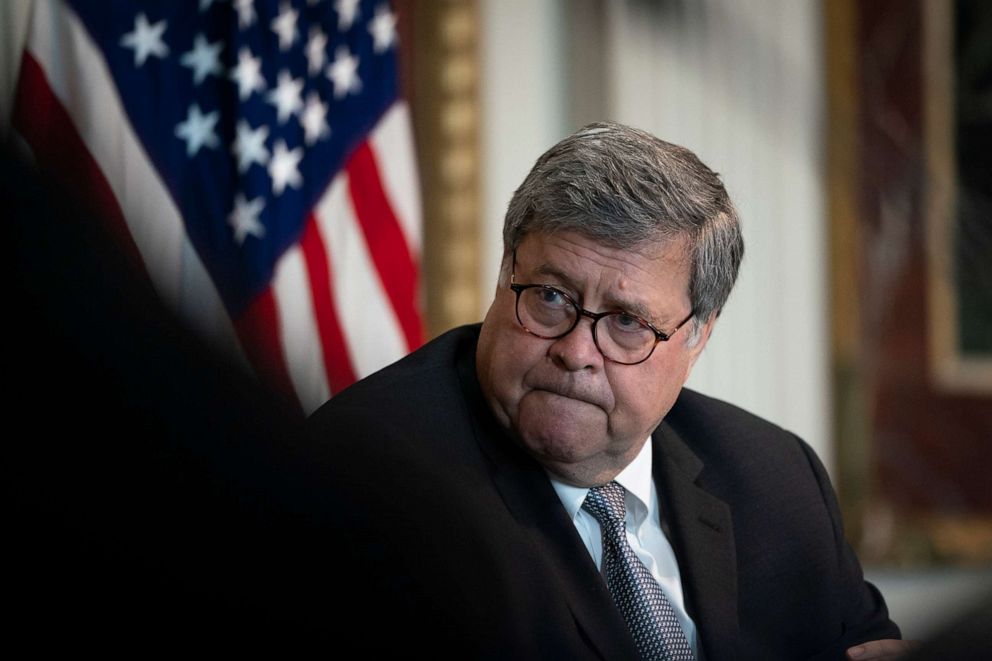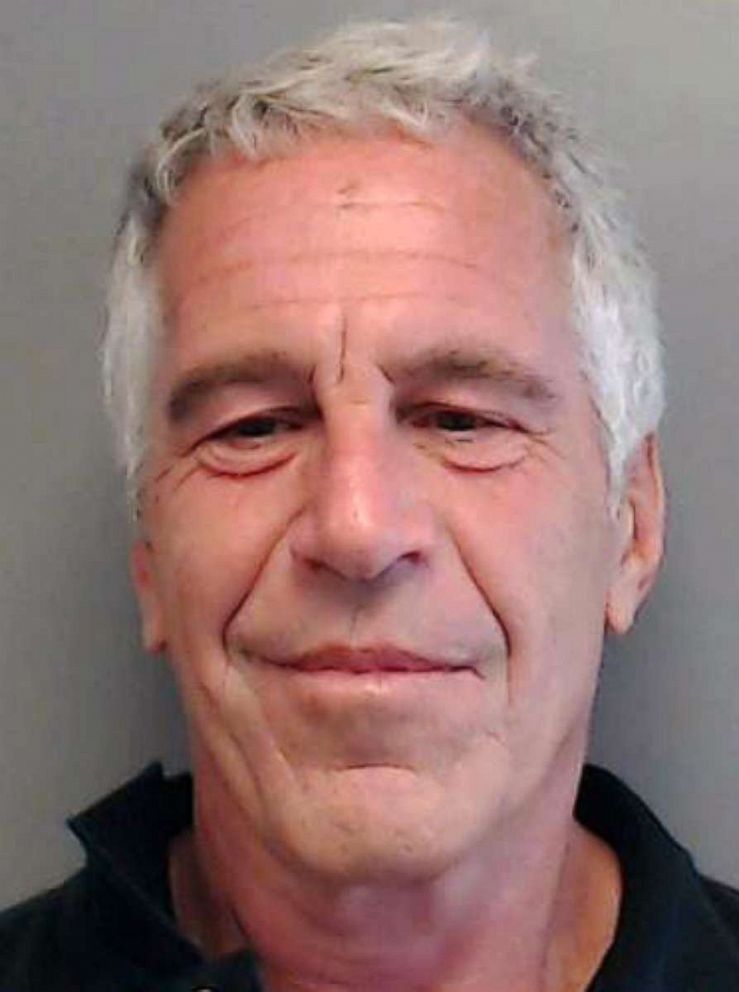Jeffrey Epstein's suicide still looms over the federal Bureau of Prisons 1 year later
The federal Bureau of Prisons has been under fire since Epstein's death.
One year after Jeffrey Epstein's suicide inside New York's Metropolitan Correctional Center there have been no answers from the federal Bureau of Prisons on what happened Aug. 10, 2019 after a promised investigation and a call for more transparency.
"We will get to the bottom of it, and there will be accountability," Attorney General William Barr said just days after the suicide.
In an interview with Axios last week, President Donald Trump suggested that he believes Epstein's death wasn't a suicide, despite his attorney general and medical experts concluding it was.
"People are still trying to figure out how did it happen. Was it suicide? Was he killed?" Trump asked.
That contradicts what Barr has said on several occasions about the death of the former financier and convicted sex offender.
The attorney general told ABC News' Chief Justice Correspondent Pierre Thomas in July, he was "livid' about the suicide.
"As you will recall -- after he committed suicide I said that I was confident that we would continue to pursue this case vigorously and -- pursue anyone who's complicit in it," Barr said.
Barr said at the surface the motives seemed nefarious, but it wasn't once he took a look at the whole picture.
"I can understand people who immediately, whose minds went to sort of the worst-case scenario because it was a perfect storm of screw-ups," Barr told the Associated Press in November, noting he personally reviewed security camera footage and determined no one had accessed Epstein's cell around the time of his death.
The Bureau of Prisons declined to make the director available for an interview and declined to comment citing ongoing investigations.
A week after Epstein's death, the attorney general appointed a new Bureau of Prisons director -- Kathleen Hawk Sawyer. Barr also promised to get to the bottom of what happened in MCC New York.
Hawk Sawyer, a BOP veteran, lasted less than a year in the institution, and new director Michael Carvajal was appointed by the attorney general in March.

The relocation of the warden in charge of the Metropolitan Correctional Center in New York, was stalled by the Bureau of Prisons in January. The BOP said Lamine N'Diaye, who was the warden at the time of Epstein's death, has been "deferred pending the conclusion of investigations."
Shane Fausey, the president of the Council of Prison Locals, the union that represents corrections officers, said the bureau has serious staffing issues that have yet to be addressed.
"Until we have enough correctional officers to properly supervise inmates, we can't increase the level of safety and incidents will continue to happen. The agency is reactionary," Fausey explained. "Reacting to problems instead of being proactive. You can only be proactive, if you're adequately staffed. The COVID response, the suicide rates, the rates of inmate violence. The statistics speak for themselves and they depict an agency in the midst of a staffing crisis."
In November, two corrections officers, Tova Noel and Michael Thomas, were charged with "making false records and conspiring to make false records and to defraud the United States by impairing the lawful functions of the Metropolitan Correctional Center, a Manhattan detention facility that houses federal inmates," a release from the Southern District of New York said.
"For a period of approximately two hours, Noel and Thomas sat at their desk without moving, and appeared to have been asleep," the indictment says. "Noel used the computer periodically throughout the night including to search the internet for furniture sales and benefit websites. Thomas used the computer briefly around 1 a.m., 4 a.m. and 6 a.m. to search for motorcycle sales and sports news."
Both Noel and Thomas have pleaded not guilty.
"These indictments don't address the core issues inside of the Metropolitan Correctional Center New York or the Federal Prison system in its entirety. These staff were placed in an assignment where the tools and resources needed to be successful were not available. Simply assigning blame will not correct the staff shortages that put this chain of events in place," Tyrone Covington, who represents the Correctional Officers Union and is president of union Local 3148, said.
Federal Bureau of Prisons sources told ABC News "nothing" has changed inside the agency -- despite pledges to do so.
One federal source said there has been no movement on the internal investigation looking at BOP's shortfalls with Epstein's death and none on the investigation into the 2018 death of Whitey Bulger, the legendary leader of the Boston-based Winter Hill Gang. Bulger was beaten to death at United States Penitentiary Hazelton in West Virginia.

Even with the added scrutiny, BOP facilities have been in the headlines.
At MCC, a gun was found inside the facility in March 2020.
From May 2019 to December 2019, there were 11 assaults of MCC officers, while there have been 15 in just the first two months of 2020, a source said.
A source familiar with the matter says the very place where Epstein died by suicide, the Special Housing Unit, is "routinely" understaffed, highlighting a major safety issue for the inmates in the SHU.
One source described the prison as a "nightmare" to work in and outlined what they describe as a revolving door of leadership, where some members of upper management are only in their positions for 18 months before they move on to different facilities.
Typically, the source said, wardens and associate wardens stay at a facility much longer.
MCC has had their share of high profile inmates, such as Michael Avenatti, the former lawyer to Stormy Daniels who was convicted in mid-February for extorting Nike.
Although Avenatti was released from MCC in March due to COVID-19 concerns, a source familiar with his conditions at MCC said he was kept in the Special Housing Unit, the same unit as Epstein.
Across the river, at the Metropolitan Detention Center, where Ghislaine Maxwell is being held, a Department of Justice Inspector General review found that MDC, which left 1,700 inmates in below-freezing temperatures after a fire last year, had "longstanding" problems with its heating system.
"We determined that heating issues had been a longstanding problem at the jail that existed before, during, and after the fire and power outage and were unrelated to these events," said Horowitz, adding, "Rather, they were the result of the facility's lack of proper equipment to continuously monitor temperatures, which the BOP (Bureau of Prisons) was aware of and had not addressed," Horowitz said.
When asked about Epstein's accomplice Maxwell, Trump wished her well.
"She's now in jail. Yeah, I wish her well. I'd wish you well. I'd wish a lot of people well. Good luck. Let them prove somebody was guilty," Trump said.
The attorney general said last month he's committed to making sure she makes it to trial and has asked those responsible for her safety to relay "specifically the protocols they're following, and we have a number redundancy systems to monitor the situation."
One of those protocols, sources said, was that she was given paper clothes upon checking into the Metropolitan Detention Center in Brooklyn, New York, over fears she might take her own life.
Sources stressed to ABC News that it is standard procedure for high-profile inmates or new inmates. However, one source told ABC News the federal Bureau of Prisons has gone to "great measures" to ensure Maxwell's safety.




